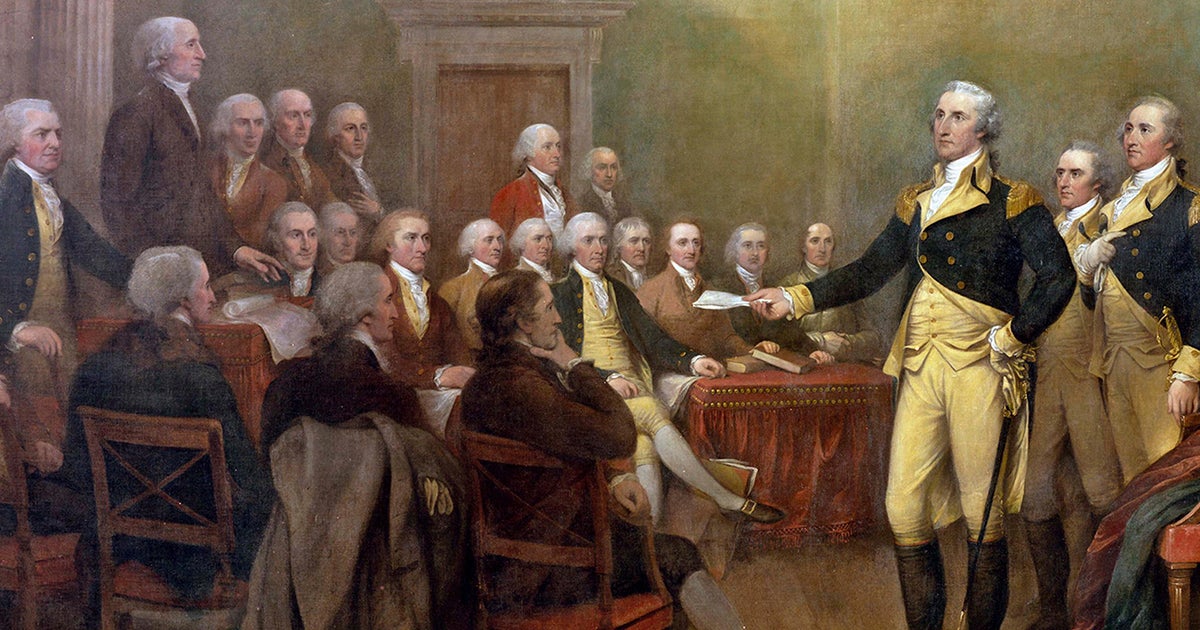
by Howard Goldthwaite • 5 min read
With Presidents Day approaching, it’s the perfect time to reflect on one of the most unheralded events in American history.
Even though it’s not a national holiday that comes with a three-day weekend, the day George Washington stepped down as President marked a major milestone in the American experiment of democracy.
You could argue that America’s democracy wasn’t authenticated when the Declaration of Independence was signed, or when we won the Revolutionary War, or even when Washington was first elected President—it happened when he willingly stepped down and handed power over to the next elected President.
When America’s second President, John Adams was inaugurated, the event also inaugurated one of America’s most hallowed government traditions: the peaceful transfer of power. It’s one of the many ways Washington proved himself worthy of the title: The Father of Our Country.
As human history has tragically proven throughout the centuries, there’s nothing more addictive than power. Some people will do anything to get it; and once they have it, they’ll do anything to hang on to it.
When Washington was in office, people openly doubted whether he would actually step down. Some speculated he might even declare himself King. But on March 4, 1797, Washington proved to all the doubters that he really did believe in the founding principles. He demonstrated that “we the people” were in charge.
At the time Washington stepped down at the end of his second term, there was not yet a two-term rule for presidents. (That was added to the Constitution in 1947.) He was still immensely popular and could have kept on being re-elected as many times as he wanted. But he knew he would set the example for those who would follow. He didn’t want future Presidents, or the voting public, to view the presidency as a lifetime role. He knew that if he were to die in office, it could set the precedent for future Presidents to serve for life.
Well before he was elected for his first term in 1789, Washington foreshadowed the day he would eventually step down as President with another noteworthy event. In 1783, after winning the Revolutionary War, he resigned his commission as commander in chief of America’s Continental Army. He had led the war effort since the end of 1776, when the Continental Congress had given him virtually dictatorial powers over America’s armed forces. He could have leveraged his command of the military to seize power and forego the election process, but he chose not to. He had spent years fighting a tyrant and was determined not to become one.
He famously said, “I shall constantly bear in mind, that as the sword was the last resort for the preservation of our liberties, so it ought to be the first thing laid aside, when those liberties are firmly established.” Artist John Trumball immortalized the event in his famous painting, “The Resignation of General Washington, December 23, 1783” which hangs in the U.S. Capitol Rotunda.
When his adversary King George III heard that Washington would surrender his commission, he said that by giving up this power, Washington would be the greatest man in the world.
When Washington stepped down as President, his Farewell Address was first published in a Philadelphia newspaper on September 19, 1796, then in papers around the country. Small booklets of the address were even sold on street corners. His address was so widely embraced that it sold more copies than the Declaration of Independence!
Without a doubt, his Farewell Address was one of the most eloquent speeches in American history. But even to those who never read a word of it, his relinquishment of power spoke volumes for the spread of democracy. You can be sure that the jaws of kings, emperors, and dictators around the world dropped when they heard the news.
Ever since 1893, the U.S. Senate commemorates George Washington’s birthday on February 22 by having one of its members read his Farewell Address. It’s an annual reminder for those in office that they too must each eventually step down and relinquish power—following Washington’s example.
Handing over the reins of power to the next group of elected officials is, in its most basic sense, a reminder to all Americans that the power does not belong to our leaders. That power remains firmly in the hands of American voters—just as Washington hoped.
Read Washington’s Farewell Address.